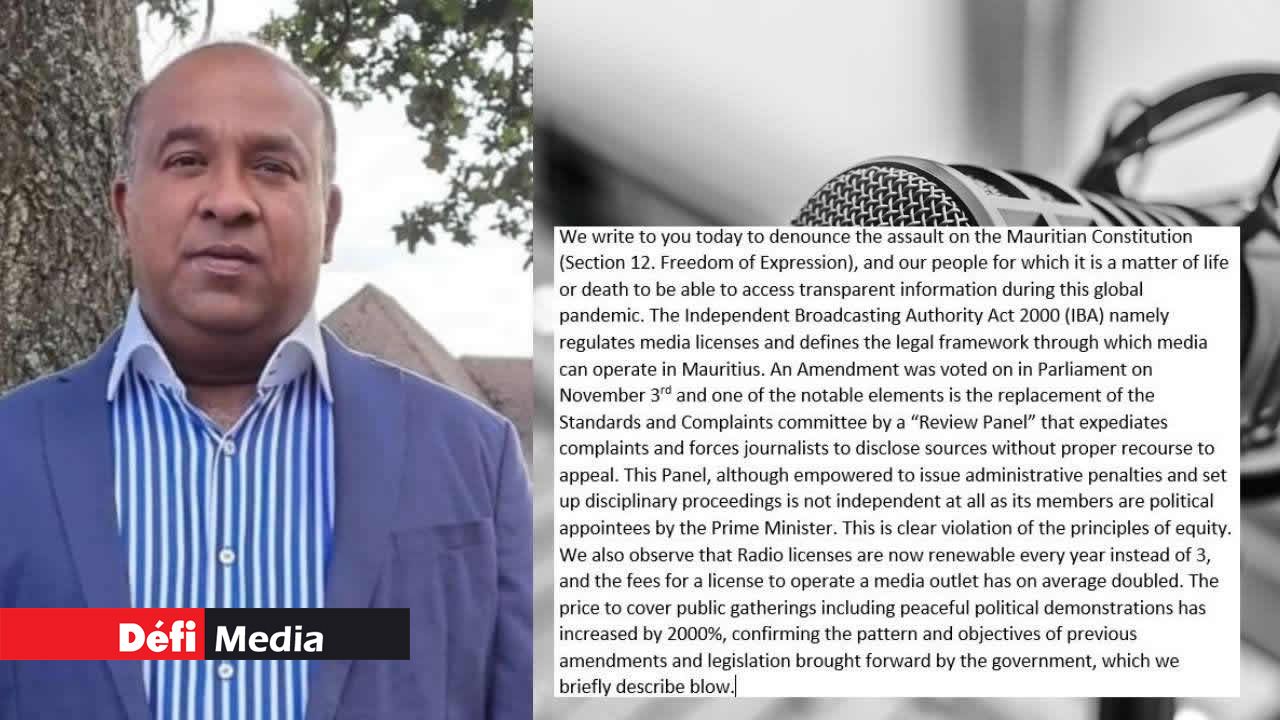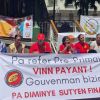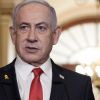
Covilen Narsinghen, le président de la Mauritius Global Diaspora, basée en Angleterre, a adressé une lettre a 30 organisations internationales, notamment Amnesty International, Reporters Sans Frontieres, International Consortium of Investigative Journalists et Human Rights Foundation, pour dénoncer les amendements apportés à l’Independent Broadcasting Authority (IBA) Act. Lesquels permettent à l’autorité régulatrice de l’audiovisuel à Maurice de bénéficier d’un arsenal renforce pour sanctionner les radios privées.
« We write to you today to denounce the assault on the Mauritian Constitution (Section 12. Freedom of Expression), and our people for which it is a matter of life or death to be able to access transparent information during this global pandemic », écrit, entre autres, Covilen Narsighen.
Publicité
Voici les 30 organisations et la lettre de la la Mauritius Global Diaspora :
1. V-dem
2. European Federation of Journalists
3. Ethical journalism network
4. Global Forum For Media Development
5. Committee to Protect Journalists
6. Freedom House
7. The Global network defending and promoting freedom
8. Article 19 – Defending freedom of expression and information
9. Global Investigative journalism Network
10. Reporters Committee for Freedom of the Press
11. Center for media Freedom and Responsibility
12. Freedom of the Press
13. Internation Center for Journalists
14. The Media Institute of Southern Africa
15. Electronic Frontier Foundation
16. Civicus
17. Forbidden Stories
18. ICIJ: International Consortium of Investigative Journalists
19. Amnesty International
20. Inter Press Service
21. National Endowment for Democracy
22. Open Society Foundations
23. Internews
24. Reporters Sans Frontiers
25. United Nations Human Rights Council
26. FATF Secretariat
27. European Commission (chief spokesperson)
28. INTERNATIONAL FEDERATION FOR HUMAN RIGHTS
29. Human Rights Foundation
30. European Centre for Press and Media
Dear Madam/Sirs,
Since its foundation, the Mauritius Global Diaspora has been and remains an NGO focused on promoting Democracy and Human rights in Mauritius and in the UK. Our mission is to ensure the perennity of Democratic traditions and that Social Justice, Inclusion and Freedom of expression prevail. To promote the participation of Mauritians of all abilities and achieve gender parity in the public and private spheres, MGD proposes virtual and local platforms for entrepreneurs, processionals, and individuals of all walks of life so that they have a voice to express their concerns about their country.
In 2002, Mauritius welcomed the opening of the media industry to private actors after decades of a National Television that tended to be a spokesperson for the government of the day. This decision, almost 20 years later had established a dynamic and recognised industry of professionals as private radios emerged over the years to become stable entities within the economical landscape, employing directly and indirectly thousands of Mauritians over the years. Through private enterprises in media, a generation of concerned citizens, artists and intellectuals was able to contribute to the process of building a vibrant democracy as local culture and knowledge became more accessible.
We write to you today to denounce the assault on the Mauritian Constitution (Section 12. Freedom of Expression), and our people for which it is a matter of life or death to be able to access transparent information during this global pandemic. The Independent Broadcasting Authority Act 2000 (IBA) namely regulates media licenses and defines the legal framework through which media can operate in Mauritius. An Amendment was voted on in Parliament on November 3rd and one of the notable elements is the replacement of the Standards and Complaints committee by a “Review Panel” that expediates complaints and forces journalists to disclose sources without proper recourse to appeal. This Panel, although empowered to issue administrative penalties and set up disciplinary proceedings is not independent at all as its members are political appointees by the Prime Minister. This is clear violation of the principles of equity. We also observe that Radio licenses are now renewable every year instead of 3, and the fees for a license to operate a media outlet has on average doubled. The price to cover public gatherings including peaceful political demonstrations has increased by 2000%, confirming the pattern and objectives of previous amendments and legislation brought forward by the government, which we briefly describe blow.
On April 14th, 2021, the government proposed further amendments to the ICT Act as they did in 2018, proposing fines up to Rs 1 million and sentences as high as ten years in prison for citizens who through online messages could cause “annoyance” to the receiver or reader, without any legal definition of the prejudice caused. In practice, the amendment ended up being amongst other things, a tool to file complaints against journalists and media outlets who were critical of the government.
In October 2021, a Cybersecurity and Cybercrime Bill came into force and just like in the ICTA, this bill included new potential crimes without proper definition, leaving an openness for interpretation which will surely end up in the abuse of freedom of expression, just like it was for the ICTA. Other than the fact that this Bill does not respect the fundamentals of legislation drafting, it fails to properly address the actual cybercrime issues we all face and remains inapplicable as, for example, obtaining citizen’s data from corporations like Facebook lies beyond the Mauritian jurisdiction. There is an evident pattern here where we observe attempts by the state to control information and engage in repression (instead of debate) against those who disagree, or professionals whose role is to investigate issues for the truth to emerge.
Mauritius if officially among the world’s most affected countries by the global pandemic. Promises to deliver a Freedom of Information Act had been made several times over the last decade. Today, we instead take giant steps back. To restrict the diffusion of crucial and authentic information in a democracy in a state of quasi national emergency has been defined not only as anti constitutional, but as criminal (Negligence) by several specialists, given the current context. RSF condemned the treatment of journalists in Mauritius and the V-dem institute described Mauritius as on a path to Autocracy. Numerous local and international NGOs, lawmakers and members of civil society have voiced out against these repressive attempts to access and control private data of citizens, while on the other hand, government reports and figures of the economical, social and sanitary situation of the country have become a source of anger and frustration in the population whose experience of the situation is not reflected in the official discourse.
We would be grateful if you could issue an official statement or reply supporting the Mauritius Global Diaspora in its promotion of freedom and democracy. We would also like to meet with one of your representatives to discuss how we can together address the Human rights issues we currently face in Mauritius.
Covilen Narsinghen | President
Mauritius Global Diaspora (MGD)

Notre service WhatsApp. Vous êtes témoins d`un événement d`actualité ou d`une scène insolite? Envoyez-nous vos photos ou vidéos sur le 5 259 82 00 !





















